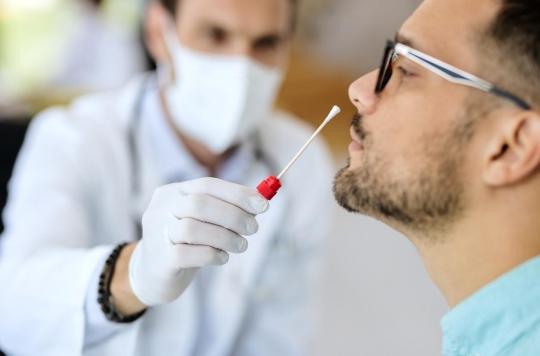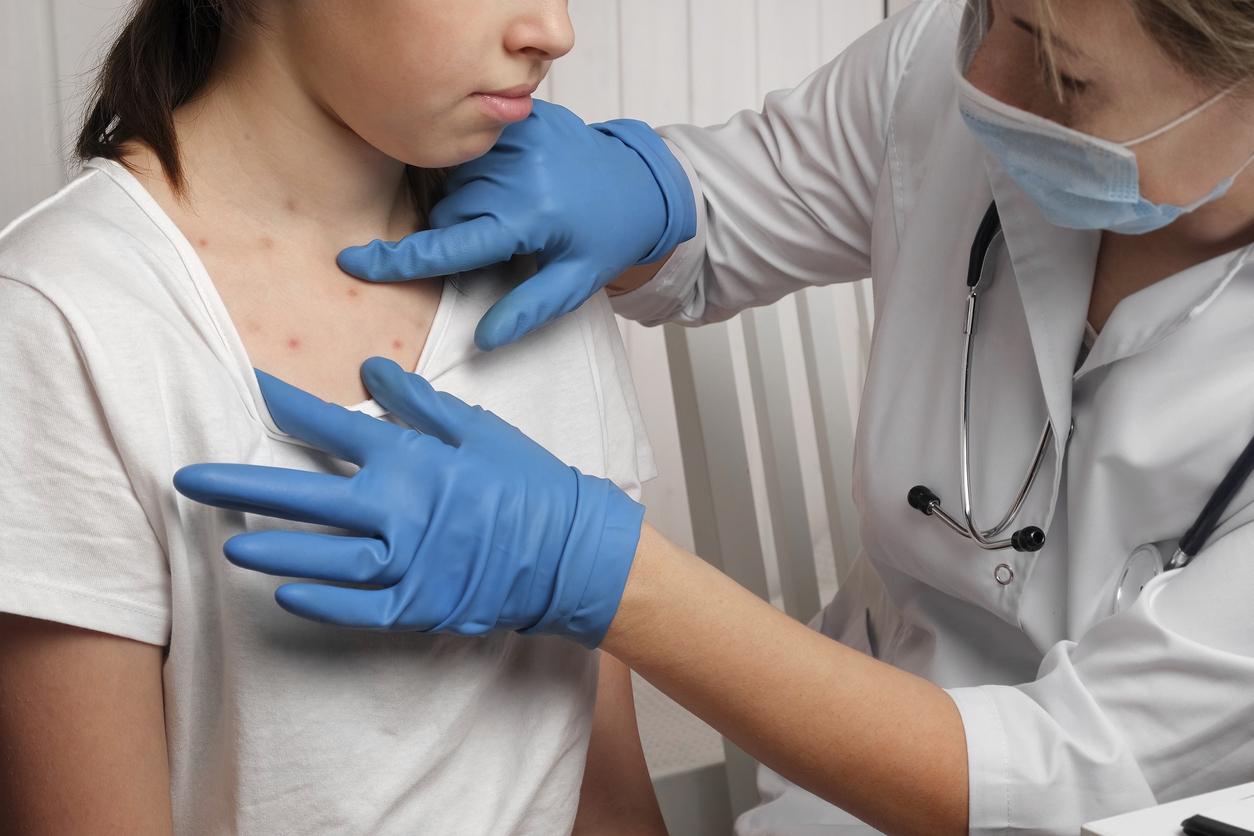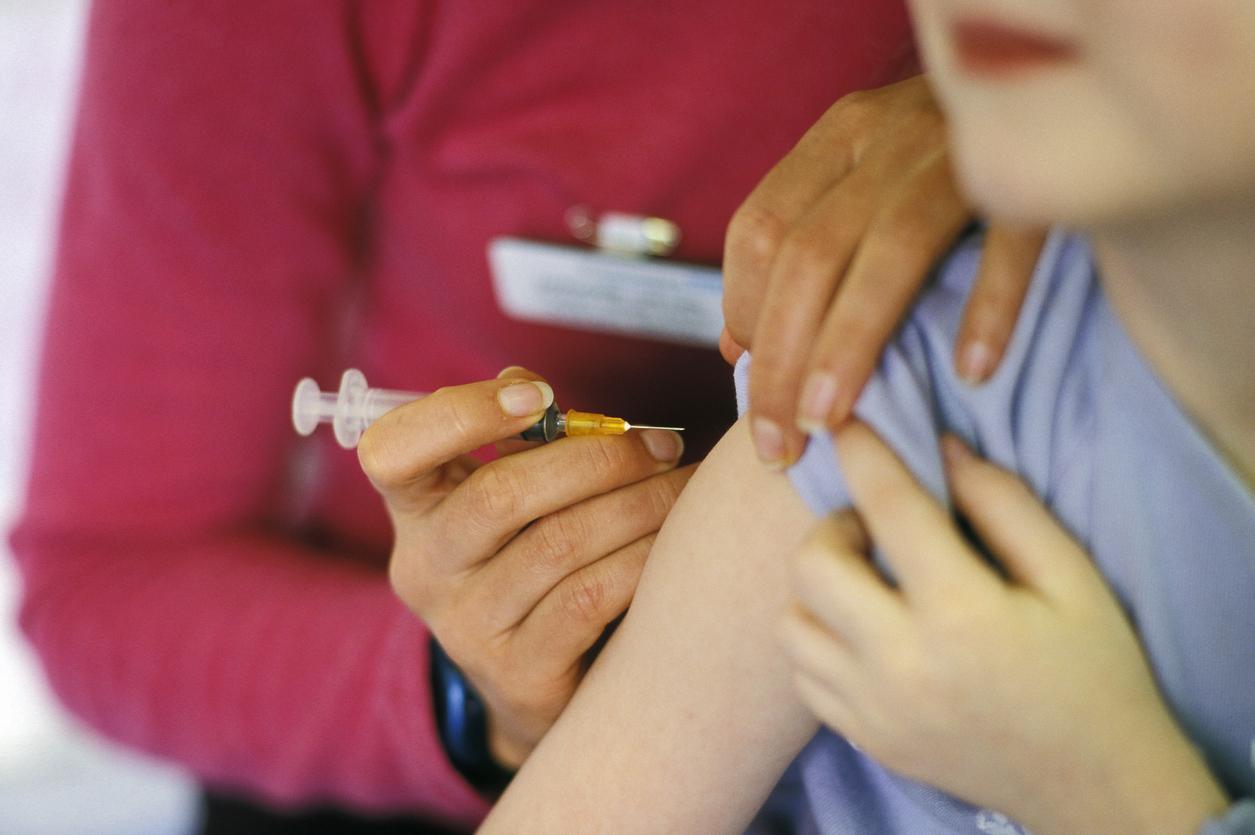Published Thursday, the latest survey from the Research, Studies, Evaluation and Statistics Department (Drees) highlights the effectiveness of vaccines against Covid-19, and in particular against the Delta variant… but includes bias. Explanations.

- According to figures from this DREES study for the week of June 28 to July 4, 80% of people who tested positive for Covid-19 had not received any dose of vaccine, compared to 6% who had been fully vaccinated.
- The study also shows the effectiveness of vaccination against the Delta variant, which mainly affects young people.
- However, these figures should be interpreted with caution because, as recognized by the DREES, the non-vaccinated are over-represented there.
Vaccination is currently the main bulwark against severe forms of Covid-19 and remains effective against the Delta variant. This is what brings to light the new study conducted by the Research, Studies, Evaluation and Statistics Department (DREES) and published on Thursday 15 July.
Conducted from June 28 to July 4, the study is based on the results of the 2,120 PCR tests that revealed positive per day on average. According to the results, only 6% of infected people were fully vaccinated. By restricting ourselves to only patients declared symptomatic, the proportion of fully vaccinated patients who tested positive even drops to 4%. On the contrary, 80% of the patients had not received any dose of vaccine and 11% had received a first injection for at least 14 days.
Effective vaccines against the Delta variant
These figures, although reassuring, contrast with those of the fully vaccinated population. That same week, only 32% of the French population had completed their vaccination cycle having received their two doses.
The other good news highlighted by the DREES study is that of the good protection afforded by vaccines against the Delta variant. 380 L452R screened positive tests (corresponding to a suspected Delta variant) were performed from June 28 to July 4. The results show that only 5.5 of fully vaccinated patients were positive, and 4.7% were symptomatic. “Given the low numbers involved, the protective effect of vaccination against infection does not seem to be significantly different for this particular mutation”advances the Dress.
However, the figures reported by the administration linked to the Ministry of Health show that, unlike the other variants, the Delta variant seems to affect young people more. “The numbers of tests identifying the so-called L452R mutation are more concentrated in young adult populations than the numbers of positive tests not carrying this mutation”, notes the Drees. In one week, 180 people aged 20 to 30 tested positive for the Delta variant, 80 people in the 10-20 age group and just over 80 in the 30-40 age group. The 40-50 are only 59 to have been declared positive, while the infection with this mutation concerns only 45 patients aged 50 to 60 years.
An overrepresentation of the unvaccinated
However, be careful with the bias of the study warns the DREES. Indeed, the latter is based on the results of the PCR tests carried out mainly by people who have not been vaccinated or who have not yet had their two injections. Fully vaccinated people thus represent only 19% of all tests carried out over the period. “The non-vaccinated are therefore well overrepresented among people taking a test (whether positive or negative)”recognizes the Drees, who explains that this bias could have been reduced by counting only the tests carried out by symptomatic people.
In this case, the proportion of symptomatic and unvaccinated French people increases to 83%, while that of fully vaccinated French people drops to 4%. It is this figure that the Minister of Health argued during his visit to a vaccination center in Chambéry (Savoie) this Thursday, July 15. According to Olivier Véran, “96% of French people who contracted Covid-19 with symptoms last week were not vaccinated”. “When you are vaccinated, you are at least four times less likely to catch Covid”he added.
For the authors of the study, the expansion of the health pass should further accentuate the trend of overrepresentation of non-vaccinated people. “An increase in negative results for unvaccinated patients should lower the positivity rate in this population, via an effect that does not exist for vaccinated people (who are tested, a priori, only for health reasons)”specifies the DREES, which considers that it is no longer “possible to accurately estimate vaccine efficacy via simple descriptive statistics”.
.

















